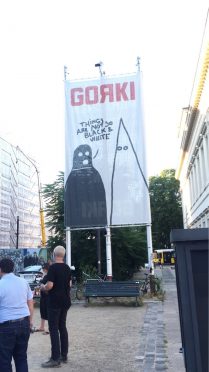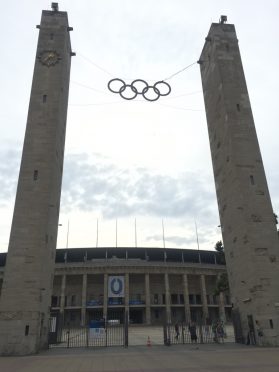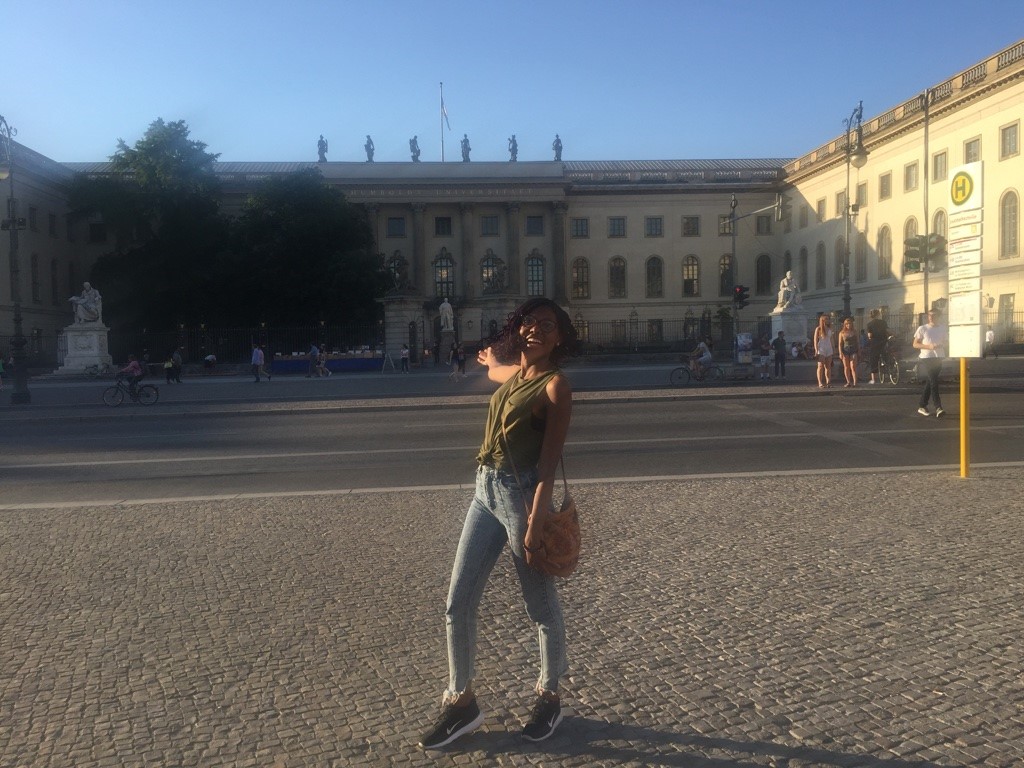Applying for the summer school:
I heard about the opportunity to attend the summer school through a presentation in our department by the International Office and started my application process immediately. I would advise to find out when application dates open and start applying as soon as possible. This gives your referee sufficient time to write a reference letter and it also gives you enough time to make the video that accompanies the application. I made sure to specifically choose summer schools which 1) offered housing in order to reduce costs and 2) would take place during the June/July holidays because I did not want to miss out on any classes. I officially received confirmation that I had been accepted to the summer school about a month after submitting my application. A week later I received confirmation that I had been awarded a travel bursary.
Pre-departure:
The June/July period is summer in Germany which means tickets are a little bit more expensive and flights fully booked so I made sure to book my flight as soon as I received my travel bursary, which I did through the Neelsie Travel Agency. Unfortunately, all flights available were more than the amount received for the travel bursary, so I had to make up for the shortfall. I later found out that it probably would have been cheaper to book my flight from Jo’burg instead of Cape Town! I managed to get travel insurance from Hollard for just R350 which was significantly cheaper than the insurance offered by the travel agency.
I applied for my visa through Visalink and setting up the appointment cost me R1280. I made my appointment a month before my departure because I did not want to the appointment to clash with my exams. The application process is quite simple as long as you have your items in order as per the checklist. I applied for the visa on a Monday and it was ready by the Thursday of the same week. Getting to the visa centre is no hassle as the International Office provides transport to apply for and collect your visa.
The next step after getting my visa was getting a cash passport. This is like a debit card on which you can load foreign currency, and can be used all over the world. The advantage of a cash passport is that it protects you from currency fluctuations which you would be exposed to if you used your South Africa debit card. It also protects you from high fees because swiping is free. The charges for withdrawing are quite high so try to minimise your ATM withdrawals unless absolutely necessary. I made sure that I also had a few Euros in cash before travelling and this helped me minimise withdrawals on the other side significantly.
Humboldt University sends a very detailed pre-departure guide which helped a ton! It includes a campus map, information about transport around the city, internet, where to get a SIM card, eating in the cafeteria, the cultural programme and so much more. It also included activities which one can do in Berlin that are not organised by the university.
Arriving in Germany and the summer school:
The university organised for a student tutor to pick me up at the airport on the day of my arrival. She then took me to my apartment which I was sharing with three other students from Stellenbosch University. The apartment was fully furnished and also had WIFI. It was also right next to a bus station, close to the train station and the Mall of Berlin.
The university is an open campus much like Stellenbosch with campuses scattered all over the city with beautiful architecture and a rich history. I did the course Islam and Feminism in a small class with only 7 other students. The teaching style was different from what I am used to because they were more interactive and discursive – the lecturer barely gave presentations. The teaching environment was not as rigid and one was free and open to give opinions even when they were unpopular. The lecturer even decided to have a lecture at beautiful café overlooking the river once! As part of our course we also visited the Maxim-Gorke theatre for a political debate and visited some mosques – one of which was a newly opened liberal mosque that was open to women preachers, queer individuals and allows men and women to pray together. Given that I had very little knowledge about Islam and Feminism this course taught me a lot and shattered all my stereotypes!

The summer school also had extra curricula cultural activities which I enjoyed very much. This included a boat trip round the city, a visit to the Political archive, a trip to an art exhibition and a tour of the Olympic stadium.

Coming back to Stellenbosch:
My summer school course was only for two weeks and just as I was getting comfortable in Berlin, I had to leave again. I found myself wishing I could have stayed longer, but as the say “all good things come to an end”. Being back in Stellenbosch feels good though (besides the cold). I encourage more students to apply for such opportunities because they are a great way to combine academics and travel. You get to meet so many people from all over the world and it is a truly enriching experience!

